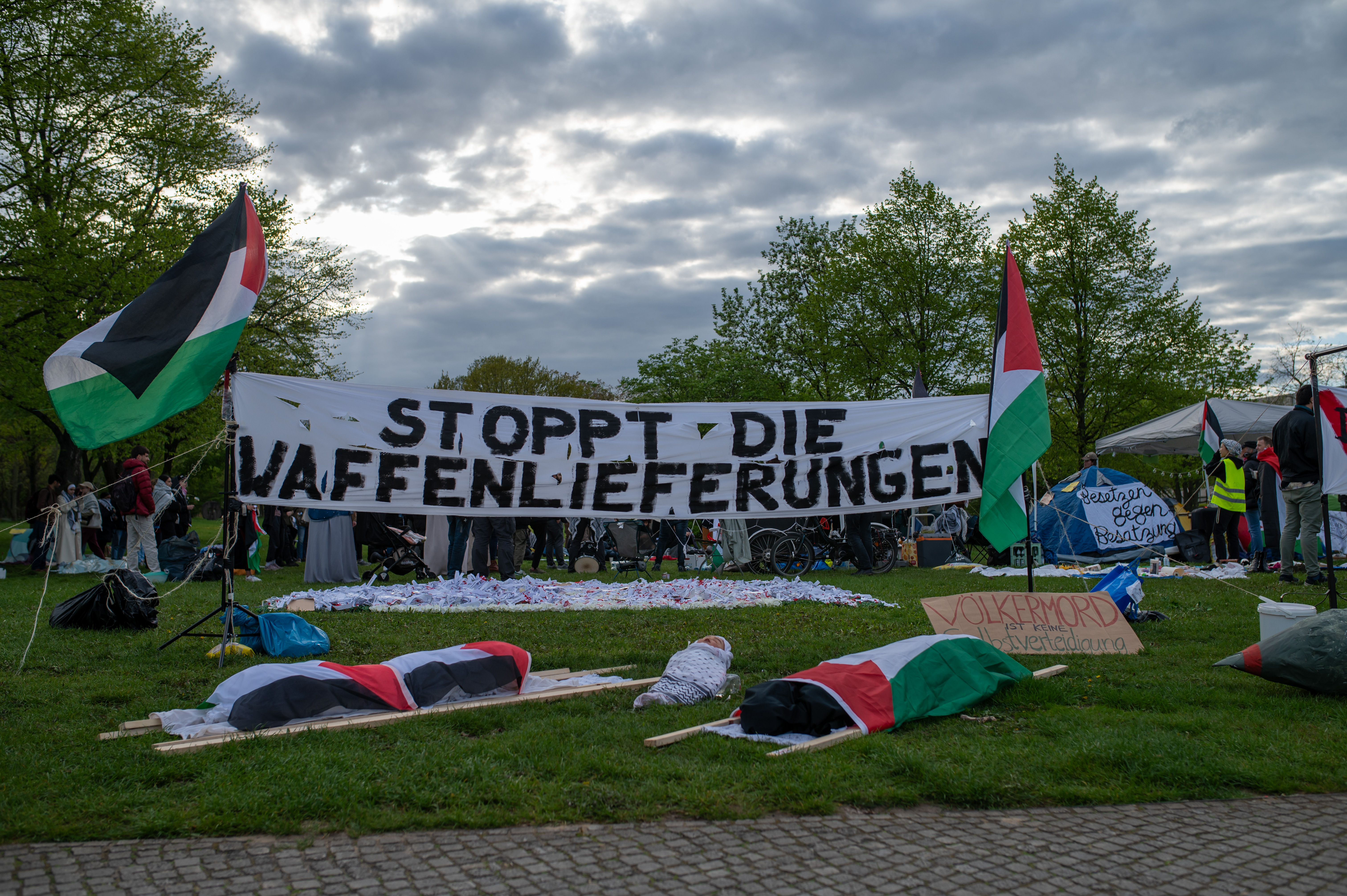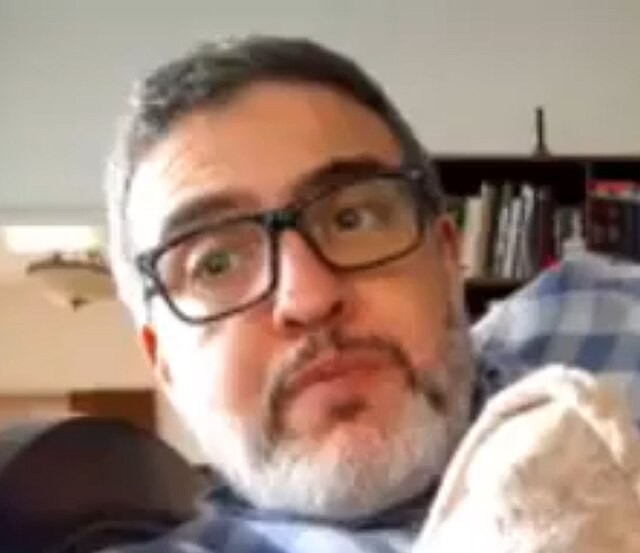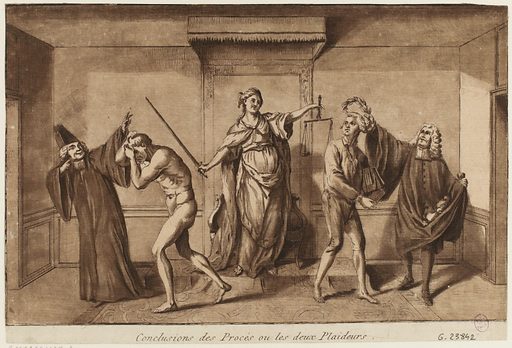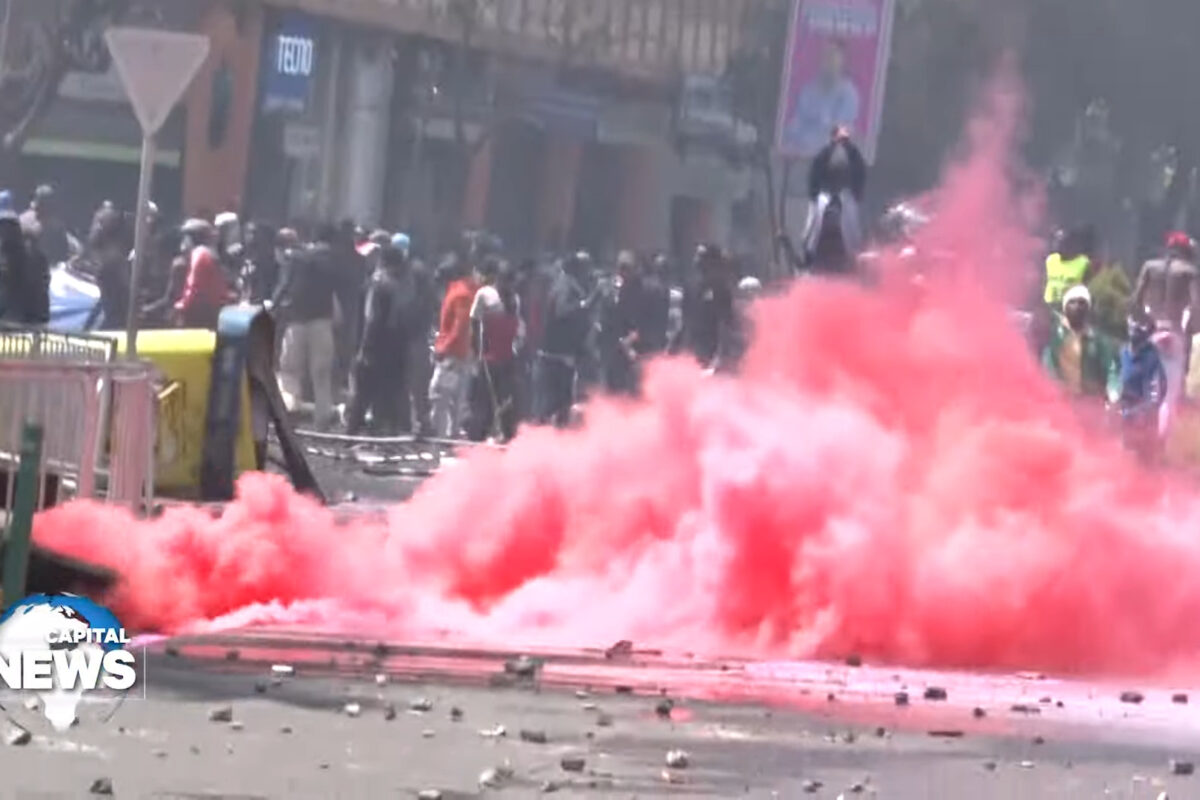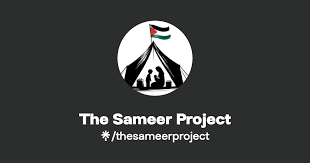Could you start by telling us who you are and where you are currently politically active in?
My name’s Jara Nassar, I’m one of the organizers of the Occupy Against Occupation protest camp (Besetzung Gegen Besatzung) that is currently happening in front of the Bundestag, and that’s where I’m currently most active within the Palestine Solidarity movement.
Can you tell us how the Besetzung Gegen Besatzung Camp arose? And can you give us a bit of context around this initiative?
So, Besetzung Gegen Besatzung means “occupation against military occupation” and we’ve been protesting, marching, educating and organizing artistic interventions for six months now. There are people here who have been involved with Palestine for six months, some for three months, but some also for years. There’s been over one protest a day on average in Berlin for the last six months, ever since the newest aggression on Gaza and the genocide started, and it hasn’t been enough. This is an escalation of tactics to say, “okay, we’re taken the streets over and over and over again, and now we’re just going to not leave anymore and create a permanent disruption.”
The camp was initially set up for one day when Germany was before the ICJ. Now it’s been going on for over a week with no sign of stopping. What made you extend it?
Exactly that the idea of doing it for one day hasn’t been enough, and the idea that “Palestine isn’t going anywhere, and neither are we”. We planned our bodies to be moving in front of the Parliament to constantly remind them that this topic will not go away, that they’re complicit and even enabling genocide, and that the people know. It’s also been an amazing spot for people to come and find community and power.
What are you demanding?
Several different things. Our main demand is an immediate military embargo and an end to all weapons exports to Israel. Germany supplies almost half of Israel’s weapons imports, a share which has increased since October. And that just must stop. We demand an end to all the occupation. That includes also the occupied Golan Heights and part of occupied Lebanon. We also demand full application of human rights for all, so that means the implementation of right of return for all refugees. We also demand accountability for all parties complicit in war crimes, the genocide and the suffering of the Palestinian people. This includes the withdrawal of the SPD’s unjust resolution for politically motivated exmatriculation of students, and for Germany to stop criminalizing the solidarity movement.
What activities and actions are taking place in the camp?
We have political education, such as workshops, we’ve shown some documentaries, we have rallies and speeches. We’ve had an art installation that’s been running permanently since the start of the camp. But our focus is mostly on the political education.
Can you tell us more about this art installation?
It’s under the title “Life Ban from Gaza”, and it showcases the absurdity and the cruelty of the Israeli barricade on Gaza that has been going on for almost two decades now. And it has two parts. On one side we see everything Israel has banned from Gaza, and we also invite visitors to participate and contribute to that. It’s everything such as food and water, but also medicine and medical equipment, that Israel has blocked from entering Gaza, especially since the so-called total siege on the ninth. And also going back over the years, very basic things like shoes, doors, wedding dresses, these sorts of things that make it very clear that the blockade doesn’t have anything to do with Hamas or Palestinian resistance.
There’s one instance the CNN reported on when, this winter, a truck of aid was turned away because there were green sleeping bags in them and green is a military color so they claimed that they had a dual use. That was the reason why the entire truck was turned back, which is absurd and cruel. So once again, it’s not about the resistance, it’s about committing genocide against the population. And then on the other side of the installation is everything that Israel allows into Gaza. So we built some models of bombs and ammunition that is supplied by the US and Germany.
What are the best strategies to make the camp safe and mobilize people to come and join?
Well, I hope I know them. I can tell you what strategies we have been using. We’ve been mobilizing via social media, and through word of mouth. And to make the camp safe, we have 24 hour shifts, so there’s always someone here. The police are giving us a lot of arbitrary restrictions, for instance, completely forbidding the use of any language but German and English right before the evening prayers, during the last day of Ramadan. So, we do have to work with the police to keep to keep our participants safe. But mobilization has been quite good. There’s been hundreds of people here over the weekend. Literally hundreds.
How have the police reacted since the camp was set?
The police do not like us. They have been giving us plenty of arbitrary restrictions. So, as I just said, from one minute to the next, it’s completely prohibiting the use of any language except German and English, including music, prayers, and chants. So we can say “free Palestine”, but we can’t say Falestin hurrah, which is the same thing but in Arabic. And other arbitrary restrictions such as not allowing us to tie anything to the trees, making us move the tents every day but denying us space to set them back up again, etc.
Earlier today, we were asked to move a tent, we did it and then the cop came back again and said: “No, it has to be 20cm further to the right.” They’ve been patrolling and harassing people, so it’s been very difficult. Another thing they prevent us from using was our big tent, even though it’s perfectly legal and someone even called the Grunbauart to ask for permission. But once it was set up, the cops made us put it away again. It would be nice to have it back because it helps a lot against the wind, cold and rain.
What are the future perspectives of the camp? Do you think it’s going to materialize into some kind of umbrella movement for all the Palestine solidarity groups and organizations?
I mean, we hope so. We’ve already been seeing people from different groups and organizations, also from all over Germany, come and visit. And we hope that it brings our demands to the forefront of the political conversation, and we hope that it inspires others. So, please, if there’s someone in a different city, organize your own Besetzung Gegen Besatzung and show the German government that we are not going anywhere until they stop enabling genocide.
How do you think the German government is going to act in this escalation of repression after the ICJ and the ban of the Palestine Congress?
They’ve already been escalating and escalating. I was at the Palestine Congress and it was insane. Turning off the electricity for the entire building, or one of the police taking away the cover for his weapon being ready to pull his gun out. So we simply hope that there will be enough pressure from civil society and the international community to stop this repression within Germany, because I personally do not see the government changing course unless they are forced to.
What can we do to support the camp?
Come by. If you are in a different city, make your own camp and spread our demands and use them as a guideline for your actions, hold those in power accountable and divest from genocide. If you’re in Berlin, we’re always very happy about people bringing us tea and coffee, especially now when the weather is cold. So that’s a very practical thing you can do. And aside from that, you support us by supporting Palestine, that means to continue talking about Palestine, joining or organising a march, educating people.
